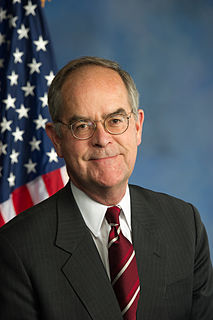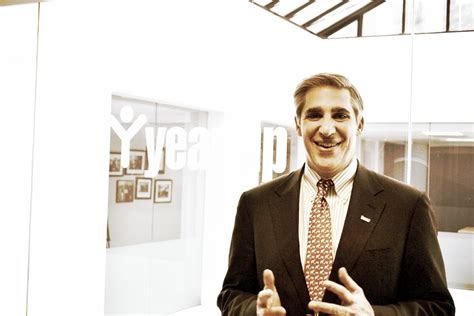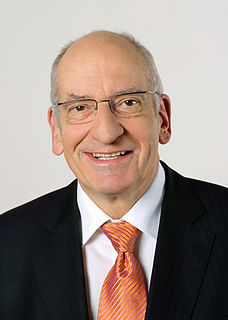A Quote by Brian Miller
The results speak for themselves: Businesses that competitively sourced service contracts saved an average of about 22 percent. Even more impressive - nearly every e-auction delivered cost savings.
Related Quotes
The second edition of There Is a Cure for Diabetes is groundbreaking. Dr. Gabriel Cousens gets impressive results that speak for themselves. He is reducing and even eliminating the need for medication, rated by The Journal of the American Medical Association as the fourth leading cause of death in people with diabetes. This well-documented book is all the more important and a better alternative.
Vague promises of savings from cutting waste, enhancing prevention and wellness, installing electronic medical records and improving quality are merely ‘lipstick’ cost control, more for show and public relations than for true change... Savings will require changing how doctors think about their patients: Doctors take the Hippocratic Oath too seriously, “as an imperative to do everything for the patient regardless of the cost or effects on others.
A few hundred years ago, perhaps 85 or even 90 percent of humanity lived below a standard of living that today only 40 or 45 percent fail to reach. But at that earlier time only part of this poverty could have been eradicated, and this at substantial cost not only to the pleasures of the affluent, but also to their well-being and to human culture. In our time, nearly all severe poverty could be eradicated at a cost to the affluent that is truly trivial.
People speak because they are afraid of silence. They speak mechanically whether aloud or to themselves. They are intoxicated by this vocal gruel that ensnares every object and every being. They talk about rain and fine weather; they talk about money, about love, about nothing. And even when they are talking about their most exalted love, they use words uttered a hundred times, threadbare phrases.
I think when people speak about faith, they always get stuck when they're starting to speak about the terrible things that happen in the world, and I always know, even in the Torah, they're always speaking about it, that if there is fifty percent of love, there is fifty percent of hate, they are always in perfect balance.
According to the Tax Foundation, the average American worker works 127 days of the year just to pay his taxes. That means that government owns 36 percent of the average American's output-which is more than feudal serfs owed the robber barons. That 36 percent is more than the average American spends on food, clothing and housing. In other words, if it were not for taxes, the average American's living standard would at least double.
If you look at the expenses of a great pharmaceutical company, they pay between about 10 to 15 percent of their expenses for research, but they use 30 to 40 percent of their incomes for marketing and promotion. It is not completely wrong that they spend so much, but it is not correct to say that there is a direct connection between the price of drugs and the cost of research. It could be more between the cost of marketing and the cost of the drugs.




































